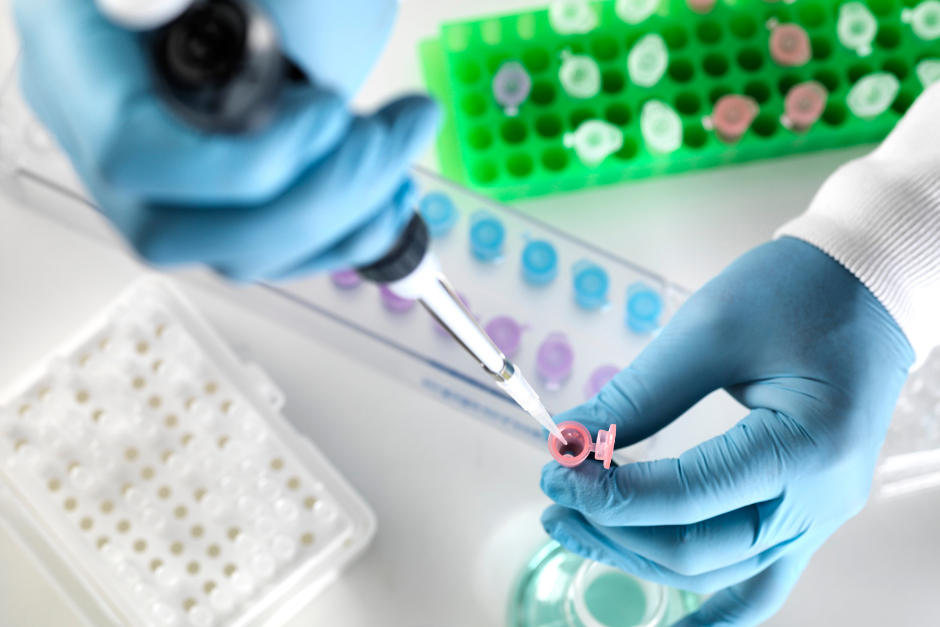The new article provides comprehensive guidance on the reporting form to be used in the context of performance studies involving in vitro diagnostic medical devices.

Table of content
The Medical Device Coordination Group (MDCG), an EU advisory body in the sphere of medical devices, has published a guidance document dedicated to safety reporting in performance studies of in vitro diagnostic (IVD) medical devices under Regulation (EU) 2017/746 (IVDR).
The document provides an overview of the applicable regulatory requirements, as well as additional clarifications and recommendations to be taken into consideration by medical device manufacturers, study sponsors, and other parties involved in order to ensure compliance thereto.
It is also important to mention that provisions of the guidance and recommendations provided therein could be subject to changes, should such changes be reasonably necessary to reflect corresponding amendments to the underlying legislation.
In particular, the guidance describes in detail the reporting form, tailored specifically for summarizing Serious Adverse Events (SAEs) within clinical studies. The form is designed to capture detailed event data and ensure compatibility with the Eudamed, a new EU-wide database for medical devices, leveraging a format that facilitates easy analysis and reporting to National Competent Authorities (NCAs).
The provided template is specifically developed for reporting SAEs associated with a given Product Specification (PS), identified by a unique Product Specification Plan (PSP). The form, adaptable across various software while ensuring Microsoft Excel compatibility, is designed to enhance the precision and efficiency of safety reporting.
Form Structure and Guidelines
First of all, the document outlines the general elements and components of the reporting form and also provides additional clarifications and recommendations to be taken into consideration by the parties responsible for clinical investigations. In particular, the MDCG pays special attention to the following aspects:
- Language: The form should be completed in English to maintain standardization across different NCAs.
- Compatibility: Modifications to the form can be made in any software as long as the final file is compatible with Microsoft Excel.
- Functionalities: Embedded filters and functionalities are crucial for using preferred terminology and should be preserved.
According to the guidance, to ensure traceability and proper identification, the heading should contain the following data:
- EUDAMED/CIV-ID: Until Eudamed is fully operational, temporary tracking numbers (CIV-ID) are assigned upon registration in the Eudamed.
- Title and PSP Code: The title and unique identification code of the PS should be consistent across all documentation.
- Contact Information: Contact details for the sponsor’s representative must be provided for any follow-up queries by the NCAs.
- Enrolment and Testing Data: The form requires up-to-date global and country-specific data on the number of subjects enrolled and specimens tested.
In addition to the above, the following reporting requirements should be considered concerning the data to be included in the form:
- Event Reporting: Cumulative data on reportable events per PS are updated and transmitted upon the identification of new events or findings.
- Detailed Country-Specific Usage: Information on the number of devices used per country is required, with additional details provided when the data indicate potential quality issues.

Detailed Event Reporting
The form provides that each reportable event should be listed in a separate line within the form, with new or updated information highlighted distinctly. The form prescribes no blank fields left in initial reports, requiring preliminary data even if further details are expected later.
As further explained by the MDCG, the main data fields are:
- Status: Events must be classified as added, deleted, modified, or unchanged with clear justifications.
- Dates: Important dates such as the sponsor’s receipt of the event report, specimen collection, and event occurrence should be carefully recorded.
- Identification: Codes for study sites, subjects, and events are specified to ensure a clear linkage without revealing personal data.
Clinical and Device-Specific Information
The document also outlines the scope of clinical and device-specific information to be provided when submitting the report in order to ensure its completeness.
Clinical Data:
- Event Classification: Events are categorized based on the severity and implications for the tested individuals, from life-threatening conditions to less critical outcomes.
- Symptoms and Impact: Detailed descriptions of symptoms, clinical signs, and the impact of the event are to be documented using specific IMDRF codes.
Device Information:
- Device Usage: Data on the number of devices used, along with a justification for non-standard usage or potential quality issues, are required.
- Event Connection to Device: The relationship between the event and the device, whether direct or incidental, should be assessed and reported.
The form should also capture the final outcome of the event, any actions taken, and the relationship of the event to the procedure and device. It ends with specifying the study arm involved, which can vary based on the study design.
Conclusion
In summary, the form provided by the MDCG, accompanied with the detailed guidelines highlighting the key aspects associated thereto, provides medical device manufacturers, study sponsors, and other parties involved with the necessary information to be considered when submitting a report related to IVD performance studies. As explained by the MDCG, the information to be provided by a responsible party should cover all the material points pertaining to the event.
How Can RegDesk Help?
RegDesk is a holistic Regulatory Information Management System that provides medical device and pharma companies with regulatory intelligence for over 120 markets worldwide. It can help you prepare and publish global applications, manage standards, run change assessments, and obtain real-time alerts on regulatory changes through a centralized platform. Our clients also have access to our network of over 4000 compliance experts worldwide to obtain verification on critical questions. Global expansion has never been this simple.
Want to know more about our solutions? Speak to a RegDesk Expert today!
–>
- SEO Powered Content & PR Distribution. Get Amplified Today.
- PlatoData.Network Vertical Generative Ai. Empower Yourself. Access Here.
- PlatoAiStream. Web3 Intelligence. Knowledge Amplified. Access Here.
- PlatoESG. Carbon, CleanTech, Energy, Environment, Solar, Waste Management. Access Here.
- PlatoHealth. Biotech and Clinical Trials Intelligence. Access Here.
- Source: https://www.regdesk.co/mdcg-guidance-on-safety-reporting-in-ivd-performance-studies-reporting-form/



